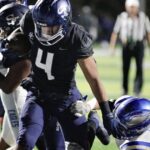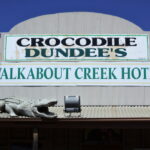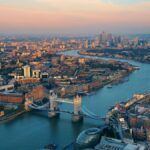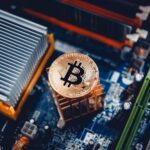— EV sales and leases tick higher, but Tesla posts a decline in latest quarterly numbers.
— Tesla still dominates EV sales in California, accounting for more than half of EV sales and leases.
Electric vehicle registrations rose 2% in California for the three months that ended Sept. 30 compared with the year-earlier period, but top-selling EV maker Tesla saw a 3.5% decline, according to the latest report from car dealers.
Tesla moved 57,587 vehicles for the third quarter — which still accounts for more than half of the 102,044 EVs sold or leased in the state for the period, according to the The third-quarter sales decline for Tesla follows drops of 7.8% in the first quarter and 17% in the second. Year to date, Tesla’s California sales and leases have declined 12.6%. Globally, for the third quarter, Tesla sales rose 6.4% as the new Cybertruck made up for sagging sales of the Model 3 and Model Y.
Tesla’s dip in sales comes amid increasing competition from other automakers rolling out new EVs, especially at lower price points. It could also be a reflection of Tesla owner Elon Musk’s prominent support of GOP presidential candidate Donald Trump in left-leaning California. “I Bought This Before Elon Went Crazy” is the slogan on one that can be found on many Teslas these days.
“Unfortunately for Elon, a certain amount of his consumer base is not a fan of what’s given him a high profile over the past year,” said Karl Brauer, auto market analyst at
Alexis Tjian of Berkeley sold her Tesla Model Y several months ago and bought a Rivian. She and her husband were unhappy with the Model Y’s quality and Tesla’s service, she said, but Musk’s politics and increasingly bizarre behavior were the last straw: “We said we’re done. He doesn’t align with our values anymore.”
Other EV makers saw high percentage gains but on a much smaller base. Year to date, Kia jumped 64%, to 10,584 vehicles, while Hyundai posted a 30.5% increase with 16,433 vehicles. Both South Korean carmakers occupy the more-affordable segment of the EV market, and also offer what Brauer calls attractive leasing options.
Ford posted a 17.3% jump in California EV sales and leases, to 12,828 vehicles for the quarter. BMW rose 36%, on 14,610.
Sales and leases of General Motors’ Chevrolet EVs plummeted 48% to 8,817 vehicles. The automaker’s fortunes might improve in the months ahead, however, with the recent launch of two new crossovers, the Equinox EV and the Blazer EV. Trade journal Automotive News reports those vehicles are already among the ten top-selling EVs nationally.
Gov. Gavin Newsom has mandated that 35% of California car sales and leases be for EVs and plug-in hybrids by 2026, rising to 100% by 2035.
But the pace of EV sales has slowed dramatically after several years of torrid growth. New car market share for battery electric and plug-in hybrid vehicles rocketed from 7.6% of new registrations in 2020 to 12.2% in 2021, 19.1% in 2022 and 24.9% in 2023.
For the first nine months of this year, however, the market share has inched up to 25.6%, amid continuing concerns among some consumers over the higher cost for EVs and so-called range anxiety.
Josh Bloom, executive director of Veloz, a nonprofit for electric vehicles, said he remains optimistic. “From our perspective, we’re continuing to see remarkable sales momentum across California,” he said. “EV market share is still increasing.”
Acknowledging that growth needs to pick up to reach state goals, he said that “we also understand that any high-tech market has ebbs and flows.”
He also put a positive spin on Tesla’s loss in popularity among many Californians, and their move to competing makes and models: “More competition is good.”
Yet, impediments to growth remain. Brauer believes California’s botched rollout of public EV charging stations is a major hurdle. Tesla has earned a strong reputation for reliable charging stations, while public chargers built to serve other brands continue to suffer from overcrowding and poor performance.
Brauer says a recent journey in a rented Hyundai Ioniq 5 became “a nightmare,” a “hugely stressful and time wasting Friday evening” when he spent four hours searching for a working charger and then waiting in a long line to fill up for the 50 miles to get him to his destination.
“That was not a fun four hours,” he said, and unless public charging improves, “I will never buy an electric car.”










